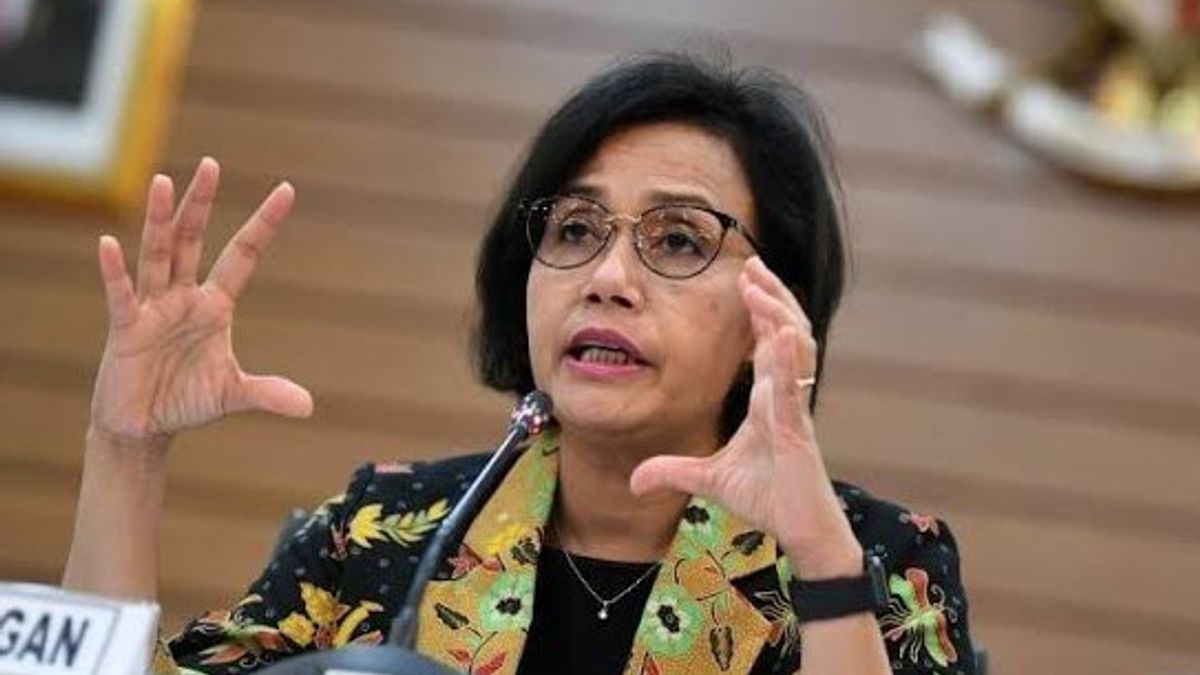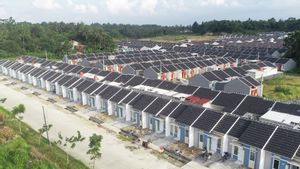Minister of Finance (Menkeu) Sri Mulyani stated that the APBN plays a role in responding to the dynamics of the economy, carrying out the development agenda.
According to him, state financial instruments are an accelator in the welfare of the Indonesian people which is shown through various economic performances and development achievements.
APBN for 2024 is to encourage economic transformation, create inclusiveness, and sustainably. Therefore, we will continue to encourage various structural programs to maintain the welfare of the community," he said in a press release quoted on Tuesday, August 30.
The Minister of Finance explained that fiscal policy can be used to encourage inclusivity and accelerate economic transformation to increase sustainability. This is in line with the long-term goal of achieving Indonesia's vision of progress in 2045. "This is still very consistent with the goal of Indonesia's vision to advance in 2045, where it focuses on human capital, infrastructure, and institution as a axis to improve productivity and also to increase added value without sacrificing sustainability," he said. The Minister of Finance assesses that human resources (HR) are the most important asset because superior human resources can increase the nation's productivity and competitiveness.
In the period 2015 to 2022, the government has issued IDR 3,492.8 trillion for education with various output achievements in terms of the number of schools, the average length of schooling, and the coarse participation rate of education, both from early childhood education (PAUD), equivalent high school, and universities.
In addition, as many as Rp1,149.9 trillion has been given to the health sector throughout 2015 to 2022 which is used to increase the number of public hospitals, health centers, handle the pandemic and reduce stunting. "Every expenditure for health and education cannot produce assets that are visible on the balance sheet, but its effect on intangible assets, namely the quality of human capital, is extraordinary," he said. Meanwhile, the government also pays attention to the social protection sector with a total of Rp2,736.8 trillion from 2015 to 2022.
The social protection budget (perlinsos) is used to reduce poverty, improve welfare, and encourage equity.
Our social protection will be expanded throughout our lives, from PAUD to the elderly. And we see that with various interventions, poverty can begin to be lowered again after experiencing an increase due to the pandemic," he stressed. Furthermore, the Minister of Finance emphasized that infrastructure development is one of the keys to increasing productivity and efficient mobility.
For this reason, the government provides IDR 2,778 trillion between 2015 and 2022 which has been spent to build infrastructure with various results, such as the number of toll roads operating, the number of public roads that are continuously maintained and improved, power plants, increasing dam capacity, and increasing the number of airports and ports. These are various tangible assets or that can be seen and assessed in our balance,'' he said. In the future, the APBN is said to be continuously encouraged to be healthier and more sustainable so that the allocation, stabilization and distribution functions can function optimally in stimulating the economy and increasing equitable welfare degrees.
For this reason, the architecture of the 2024 RAPBN is directed to accelerate inclusive and sustainable transformations.
The English, Chinese, Japanese, Arabic, and French versions are automatically generated by the AI. So there may still be inaccuracies in translating, please always see Indonesian as our main language. (system supported by DigitalSiber.id)








